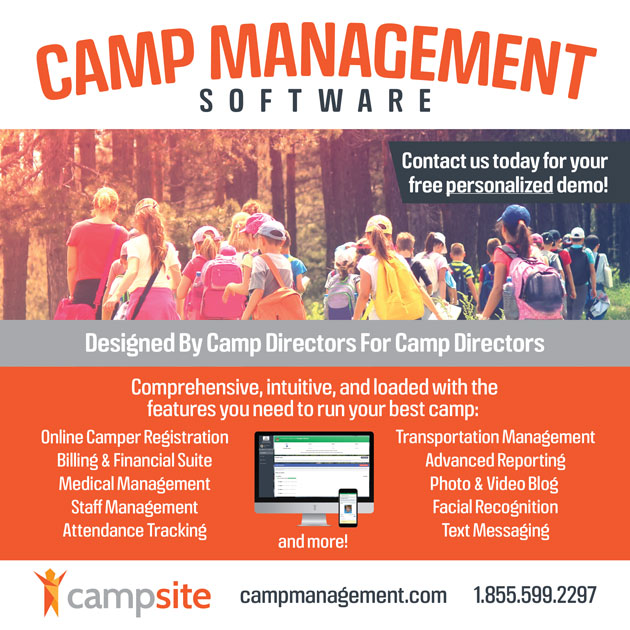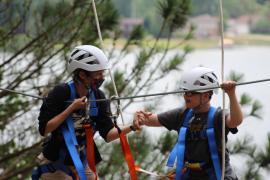Running a camp is one of the world’s most awesome responsibilities. Awesome, because what’s a cooler job than running a camp? Also awesome because the responsibility is so big that it can be overwhelming.
When I served on the team of directors of one of the largest residential camps in North America, having made it to midsummer, I often found myself standing in one of the most beautiful spots in camp and finally taking a deep, restorative breath — the one everyone practiced in the great mindfulness workshop during staff training. And l felt relaxed — while also starting to reflect on how we could do even better the next summer.
I always remember this dichotomy of thoughts and feelings that would swirl in my mind as we inched closer and closer to the end of the camp season. No matter how hard I worked, no matter how hard the entire team worked — no matter what — there was always something we could do better.
Are we doing enough to support the mental health of our entire camp community?
Before COVID-19 struck we were already seeing frightening mental health trends in kids and teens. When I first began my camp professional stint, I offered mental health training and Safe Talk suicide prevention training for every staff member who worked with high schoolers. By 2015 it was clear that serious mental health issues and behaviors were not just teenage issues. In fact, my work with children in and out of camp has me doing the most suicide intervention and safety planning work with 9–12-year-olds. As kids’ and teens’ needs changed, I noticed that post-high school staff everywhere were struggling to manage the varying and complex needs you could easily find in any cabin group at any of our camps. I also noticed those same staff struggling with mental health issues of their own.
Indeed, the pandemic has shone a much-needed spotlight on the mental health needs of our children, and my hope, my silver-lining dream as the dust settles from the past several years of chaos, is that we are in a position to enact some real change through camp.
My advice is to do what you do best. Use that anything-is-possible camp attitude! Camp staff are creative, think outside the box, and make the impossible possible. Your young staff won’t need to be convinced that we have a major problem on our hands. Unfortunately, statistically, they have a friend or friends who are really struggling. Motivation to learn and advocate more in the mental health space won’t be a struggle. Tackling mental health support at camp is likely too big for the week or two before camp starts, so consider utilizing your “nonsummer” season as a time to offer additional training for returning or new staff. You may also want to offer resources to parents or help to advertise resources already available in your recruitment areas.
However you decide to approach your “do better” list for 2023, I’m sure you will, in fact, do better! The first step is making the list, so what are you waiting for? Take that deep, restorative breath and get started — next year’s campers will thank you.
Franki Bagdade, M Ed, LLMSW, is an educational consultant, clinical social worker, speaker, and author in her business, FAAB Consulting. Franki has a bachelor's in elementary education, a master’s in special education, and a master’s in clinical social work. She has been working with neurodiverse children and teens, those struggling with anxiety, emotional regulation, and behavior, for over 20 years. She provides professional development for camp staff, educators, and mental health professionals. Franki speaks nationally on mental health topics, inclusion, and parenting. Her book, I Love My Kids But Don’t Always Like Them! hit bookstores in the fall of 2021. For daily tips and tools, follow her at facebook.com/faabfranki, instagram.com/faabparenting, or visit her website at faabconsulting.com.




